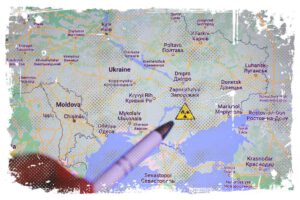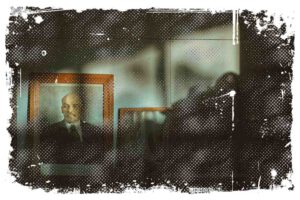Polish troops in Iraq had to operate in a challenging environment, such as one with harsh weather or cultural and religious differences among the local population. They also faced threats, such as improvised explosive devices (IEDs).

The Polish army took part in the Iraq stabilization mission from 2003 to 2011. At its peak, there were around 2,500 Polish troops stationed along the Tigris and Euphrates rivers in Iraq. 28 Polish soldiers lost their lives, and at least 150 were injured. During this mission, Poland had the opportunity to lead an international division for the first time.
Poland’s Army in Iraq: Objectives
When Poland first joined the mission in Iraq, their main focus was stabilizing the country. This was crucial, as the end of combat operations left the country in need of calm and improved security conditions.
The Polish military contingent worked to establish a new civil administration and prepare the trained Iraqi security forces to take over. In order to achieve this goal, it was important to address internal conflict. That was established through the training of Iraqi police, military, and border guards.
↳ PRO TIP: Do you like traveling? Then before you buy any ticket or book an attraction, check if it's available in this worldwide Viator Database. You may save a lot of money and time. No need to thank me :)
As the mission progressed, these objectives were redefined. Later on, the focus shifted towards providing training and advisory support.
Mine and Explosive Ordnance Disposal
A crucial task for the Polish military contingent was to clear the area of hazardous materials, mines, and explosive devices. This was a particularly dangerous because the rebels were using ammunition and weapons depots that were left behind by the Iraqi army.
In order to counter this problem, Polish troops had to purchase additional weapons and ammunition, particularly grenade launchers and anti-aircraft sets. Despite all these efforts, they were not able to completely eliminate the attacks. They only succeeded in reducing them a little bit.
Infrastructure and Country Reconstruction
Another important area of activity for the international forces, including Polish troops, was to support the country’s reconstruction. This included repairs to road infrastructure, electric and water supply lines, pipelines, and public buildings such as schools and hospitals.
Special funds were used to finance both major infrastructure projects and training programs. Specialized equipment was purchased and provided to hospitals, schools, cultural centers, court and prosecutor’s office buildings, and other facilities that were being rebuilt.
You can only imagine how huge the needs were. In addition to the purchase of facilities, furniture, and equipment, there were also hired instructors. The level of commitment in this area can be seen from the fact that several hundred projects representing different values were implemented during each military shift.
Important Moments for Polish Soldiers in Iraq
The Polish mission in Iraq had its fair share of important moments. One of the most tragic moments was when the first Polish soldier, Major Jerome Kupczyk, was killed on November 6, 2003.
Attack on Karbala
Another significant event was the attack on a base in Karbala on December 27, 2003, which resulted in the death of 5 Bulgarian soldiers. That particular day, a Polish civilian employee was seriously injured. The attack on a base in Hilla on February 18, 2004 and the uprising led by Muktada as-Sadr in April of the same year also stood out.
City Hall Battle
I am sure that one of the most memorable moments I can bring was the heroic battle fought by soldiers led by Capt. Grzegorz Kaliciak in defense of Karbala City Hall. It is considered one of the most important events in the history of the modern Polish army. A few years later, some of the participants were honored for this battle, unfortunately not all of them.
Saddam Husain Capture
I think another important moment was the capture of Saddam Husain on December 13, 2003, and the withdrawal of the last group of Polish soldiers from Kuwait on October 27, 2008. It was the end of Poland’s participation in Operation Iraqi Freedom.
By the way, I believe you may also be interested in reading my other article about Polish Troops in Afghanistan: The Polish Army’s Role During the War in Afghanistan
The Defense of Karbala City Hall
On April 3rd, there was a devastating attack that left several hundred people killed or injured. The aftermath of the attack saw Iraqi soldiers and police officers leaving their posts, while armed Sadrist groups took over the streets.
The fighting erupted around 1 am on April 4th and lasted for three consecutive nights. The city hall was defended by a group of 30 Polish and 20 Bulgarian soldiers. The charge was led by Captain Grzegorz Kaliciak. The attackers only tried to enter the building under the cover of night, as the defenders had air support during the day.
According to estimates, between 80 and 150 rebels were killed during the battle. Finally, on April 6th, a relief unit of Polish commandos arrived, and the Shiite militias retreated.
The Day Earlier
Before the attack, on April 3rd, it was clear that something was brewing. On April 2nd, there was a bus that tried to drive through a checkpoint near Karbala, so our Polish soldiers killed the driver.
This caused injuring one Polish soldier and a dozen Iraqis. Additionally, Iraqi soldiers and police officers were starting to abandon their posts.
On April 3rd, bombs began to go off in the city. They killed around 140 people and injuring more than 200. As a result, large groups of armed Iraqis took to the streets.
For the Polish soldiers, this was a sign that the time for action had come. They received a call for help from the local police chief, so they sent there a quick response unit (QRF) under the command of Lt. Klaskała.
The Battle
The battle began at around 1 am on April 4th. It was so intense that they had to bring in more ammunition supplies. Fortunately, a convoy of 4 Honker cars (including a medic and a nurse from the „Lima” base) and 14 soldiers from the quick response group from the „Lima” base managed to reach the City Hall.
It was a remarkable achievement, especially considering the cars had little armor and they were driving through streets filled with armed Iraqis. For unknown reasons, the soldiers from the „Juliet” group were pulled out of City Hall.
This left 15 Polish and 8 Bulgarian soldiers from the „Kilo” group, a Polish nurse and 2 BRDM-2 vehicles to defend City Hall.
The attacks continued throughout April 4th. Iraqi police officers started deserting City Hall. Eventually, there were around 50 soldiers (30 Polish and 20 Bulgarian) left in the building. On the night of April 4th to 5th, the rebels launched a massive attack. The Poles were on the upper floors while the Bulgarians defended the first floor.
Unofficially, it is estimated that over 80 rebels were killed during this attack, while the defenders suffered no losses. This pattern continued throughout the next three nights as the attackers only tried to enter City Hall under the cover of darkness.
Officially, only one Bulgarian soldier was injured during the battle. It wasn’t until the fourth day, when they began to run low on ammunition and food, that the 18th Battalion from Bielsko-Biala were able to reach City Hall with reinforcements. That’s when the rebels gave up further attacks.
The defense was successful, though it was a difficult battle. It was an even greater achievement considering the fact that the Poles had very little equipment, such as only one machine gun with night vision. They also couldn’t call for Polish helicopter support as they were not prepared for night operations.
Polish Soldiers Who Died in Iraq
It’s important to remember that during the mission in Iraq, some soldiers lost their lives. Below is a list of the Polish soldiers who died in Iraq:
- Hieronim Kupczyk – November 6, 2003
- Gerard Wasielewski – December 22, 2003
- Slawomir Stróżak – May 8, 2004
- Marek Krajewski – May 8, 2004
- Krzysztof Kaśkoś – June 5, 2004
- Artur Żukowski – June 5, 2004
- Tomasz Krygiel – June 8, 2004
- Andrzej Zielke – June 8, 2004
- Marcin Rutkowski – July 29, 2004
- Sylwester Kutrzyk – August 19, 2004
- Grzegorz Rusinek – August 19, 2004
- Krystian Andrzejczak – August 21, 2004
- Grzegorz Nosek – September 12, 2004
- Piotr Mazurek – September 12, 2004
- Daniel Różyński – September 12, 2004
- Pawel Jelonek – December 15, 2004
- Jacek Kostecki – December 15, 2004
- Karol Szlazak – December 15, 2004
- Roman Goralczyk – February 25, 2005
- Tomasz Murkowski – November 10, 2006
- Waldemar Milewicz – May 7, 2004 – died in an attack on a car of a Polish team of journalists traveling from Baghdad to Karbala and Nadjaf.
Conclusion
The deployment of Polish troops in Iraq was a significant test for the army that highlighted areas for improvement. It became clear that the initial equipment sent to Iraq was not suitable for the harsh Iraqi climate. However, over the course of five years, the army gained valuable experience that improved the safety of soldiers in Iraq.
This experience proved beneficial when forming the shifts of the Polish Military Contingent headed to Afghanistan. In the long run, the skills and experience gained in Iraq have significantly changed Polish army.
Bibliography
- https://defence24.pl/10-rocznica-bitwy-w-karbali-polscy-zolnierze-w-oblezeniu-i-bez-wsparcia-obronili-city-hall-video?utm_source=Histmag.org&utm_medium=article-18501
- https://historia.wprost.pl/10674850/najwieksza-polska-bitwa-po-ii-wojnie-swiatowej-w-walce-z-rebeliantami-zolnierze-nie-odniesli-strat.html
- https://bip.brpo.gov.pl/pliki/1169821584.pdf



